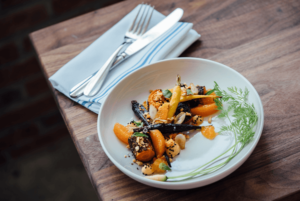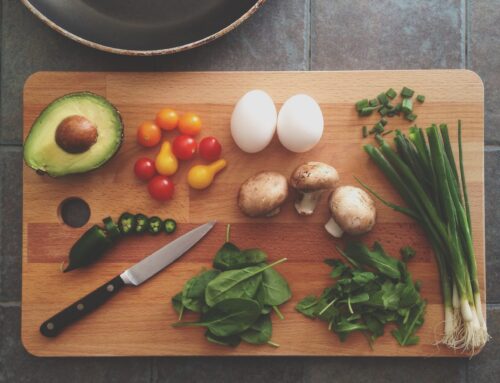The Diets War – Volume 1
I was recently interviewed for an article in Connecticut Magazine, asked about my thoughts on a vegan diet… and I wanted to expand upon the topic.
The internet is full of recommendations and admonitions about what you should eat, and you don’t have to look around very long to realize many of these claims directly contradict each other. So how do you make sense of it all?
Start by remembering what people most often forget: there is no one single healthy diet that is best for everyone. Different health conditions require different diets, and even among healthy people, different people will thrive best on different kinds of diets.
To discover the ideal diet for you – listen to your body. You can learn a lot from books, blogs, and friends, but the most important test is the one done on yourself. Learn to pay attention to how you feel, physically, mentally and emotionally when you eat in different ways.
Are vegan diets better?
 Vegan diets have been shown to promote longevity, as well as lower rates of many inflammatory diseases such as cardiovascular disease, cancer, and autoimmune disease. However, the heath benefits of a vegan diet will vary dramatically based on the quality of the food. Too many people who adhere to vegan diets rely primarily on pastas, chips, and peanut butter and jelly sandwiches.
Vegan diets have been shown to promote longevity, as well as lower rates of many inflammatory diseases such as cardiovascular disease, cancer, and autoimmune disease. However, the heath benefits of a vegan diet will vary dramatically based on the quality of the food. Too many people who adhere to vegan diets rely primarily on pastas, chips, and peanut butter and jelly sandwiches.
In doing so they actually increase their levels of inflammation and damage their health, negating the health benefits of avoiding excess animal products. For a vegan diet to benefit health, it MUST be based on a variety of vegetables, beans and legumes, nuts, and whole grains. (Cheerios are NOT a whole grain – whole grains mean the grain kernel is intact and has not been ground up into a flour and made into something else like bread or pasta or cheerios.)
Eating a vegan diet also requires paying attention to amounts and types of proteins you eat. People who eat animal products regularly typically find it much easier to consume adequate protein. It is possible to eat perfectly healthy amounts of protein while being vegan, but eating the full variety of foods listed above truly is necessary.
As a physician, I recommend people focus on adding nutritious foods to their diet: lots of vegetables, especially leafy greens, and the cruciferous family (broccoli, Brussels sprouts, cauliflower, cabbage.) Also focus on daily servings of beans, legumes, and whole or sprouted grains. When your diet includes all these foods on a daily basis, you can start to experiment with eating smaller servings of animal products or even eliminating them altogether. Just make sure you replace them with more of these healthy foods, and not “vegan junk food!”





Leave A Comment